Despite what one may think, nobody, not even you, knows exactly what the hell post-hardcore is. Please stop lying. However, some of you, but not likely you, know what the hell the word “post” means. Please keep lying. Subsequent to your pondering, pandering, or any word starting with “P” regarding the sentences above, here is a question to commiserate over: Is post-hardcore a reaction to hardcore punk, or is it anything that came out after hardcore? Please don’t answer that. In the meantime, we implore you to kick your heels up, dine alone, and enjoy the handy dandy alphabetized top fifteen ‘90s post-hardcore bands that we are completely and totally wrong about below, or continue to solely listen to Crass, wanker(s):
At the Drive-In
 El Paso, Texas has more than meth, fam. Forming in 1994, the year that punk broke, Western Texas’ own At the Drive-In put its own original stamp on the aggressive music world with a frenetic and sweaty bang, winning fan-by-fan over with their extremely buck wild live show and oft-difficult to pronounce song titles. The band released two full-length albums and four EPs this century before its 2000 break-out LP “Relationship of Command,” imploding shortly after, reforming, breaking up again, coming back together, and finally going on a possibly permanent hiatus in 2018. That’s a lot of skips on the record, but we still spin The Mars Volta more than Sparta.
El Paso, Texas has more than meth, fam. Forming in 1994, the year that punk broke, Western Texas’ own At the Drive-In put its own original stamp on the aggressive music world with a frenetic and sweaty bang, winning fan-by-fan over with their extremely buck wild live show and oft-difficult to pronounce song titles. The band released two full-length albums and four EPs this century before its 2000 break-out LP “Relationship of Command,” imploding shortly after, reforming, breaking up again, coming back together, and finally going on a possibly permanent hiatus in 2018. That’s a lot of skips on the record, but we still spin The Mars Volta more than Sparta.
Drive Like Jehu
 Drive Like Jehu is easily the least major-label sounding band to cut a record for a huge conglomerate group, and that’s post-hardcore as all get out; up the post-hardcores! Essentially a San Diego punk rock supergroup consisting of Mark Trombino on drums, John “Swami” Reis of Rocket from the Crypt on lead guitar, and more, Drive Like Jehu put its own angular stamp on the genre with 1994’s never-hated-upon-record-even-by-your-bitter-ass “Yank Crime.” It certainly is criminal behavior that this LP was the band’s swan song, and even sadder that another one will never come out; R.I.P. to DLJ and Hot Snakes vocalist Rick Froberg, who passed away earlier this year.
Drive Like Jehu is easily the least major-label sounding band to cut a record for a huge conglomerate group, and that’s post-hardcore as all get out; up the post-hardcores! Essentially a San Diego punk rock supergroup consisting of Mark Trombino on drums, John “Swami” Reis of Rocket from the Crypt on lead guitar, and more, Drive Like Jehu put its own angular stamp on the genre with 1994’s never-hated-upon-record-even-by-your-bitter-ass “Yank Crime.” It certainly is criminal behavior that this LP was the band’s swan song, and even sadder that another one will never come out; R.I.P. to DLJ and Hot Snakes vocalist Rick Froberg, who passed away earlier this year.
Far
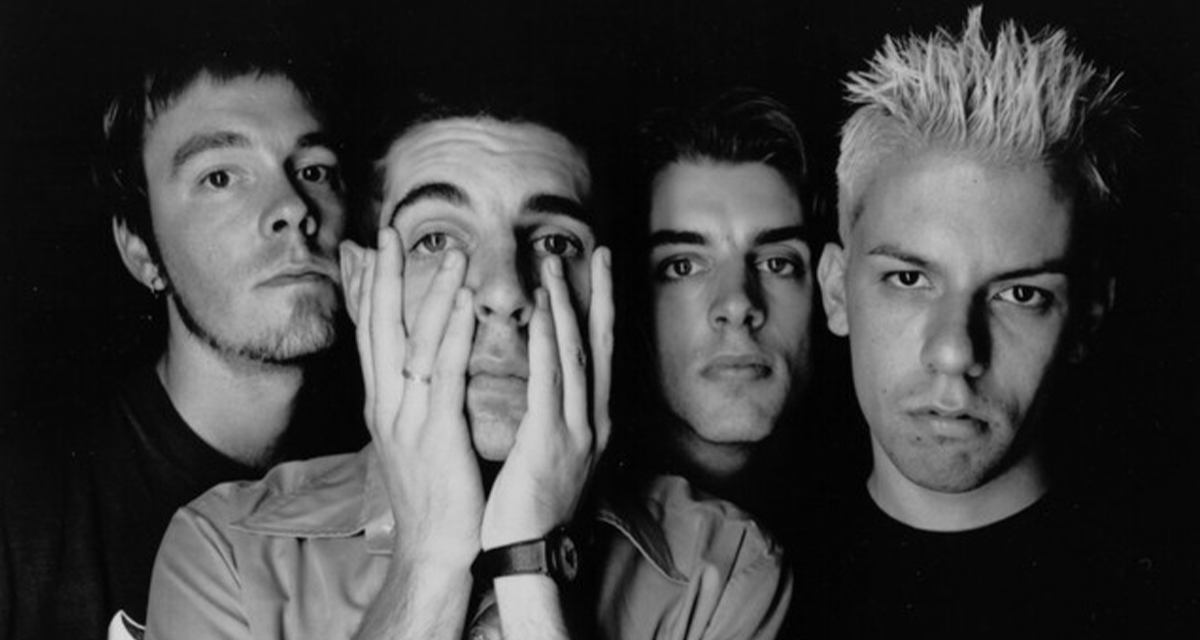 Real talk: Sacramento’s Far is tied for the most underrated band on any emo/post-hardcore list ever written along with the last band to be mentioned in this piece back and to the left. Scroll down any time that you want, Johnny! Anyway, forming in 1991, the year that grunge broke, Far released four LPs and one EP in the ‘90s to a lot of underground acclaim. However, despite the group releasing two of its albums on a major label, not many outside of the post-hardcore scene heard the group. 1998’s “Water & Solutions” is a masterpiece, and we don’t use that word unless we mean it; stop overusing superlatives, dweebs. In closing, Far created the ultimate post-hardcore blueprint record that sadly got an abundance of high praise a tad too late. Such is the system.
Real talk: Sacramento’s Far is tied for the most underrated band on any emo/post-hardcore list ever written along with the last band to be mentioned in this piece back and to the left. Scroll down any time that you want, Johnny! Anyway, forming in 1991, the year that grunge broke, Far released four LPs and one EP in the ‘90s to a lot of underground acclaim. However, despite the group releasing two of its albums on a major label, not many outside of the post-hardcore scene heard the group. 1998’s “Water & Solutions” is a masterpiece, and we don’t use that word unless we mean it; stop overusing superlatives, dweebs. In closing, Far created the ultimate post-hardcore blueprint record that sadly got an abundance of high praise a tad too late. Such is the system.
Fugazi
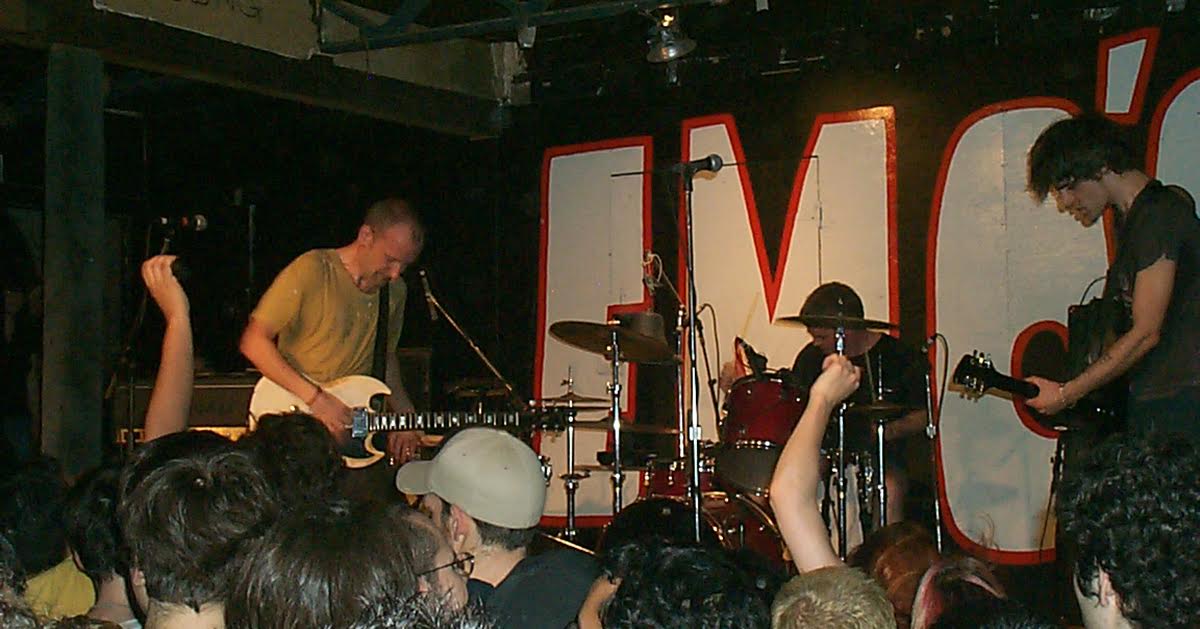 Rising from the ashes of ‘80s post-hardcore forefathers Rites of Spring and Embrace, the latter of which came from the legendary and incomparable Minor Threat, Washington, D.C.’s revered four-piece Fugazi formed in 1986, and released its first full-length in 1990. If you claim post-hardcore-DIY-till-you-die credibility, you’re obnoxious by trade and definition, but certainly know that it is illegal and punishable by hourly ridicule to spout a negative word about this band, and we are more than cool with such smug elitism and rigid rules for being a punk. Every single popular rock group that you truly, truly hate claims and namechecks Fugazi as a major influence in more ways than one, leading to the questions, “Why?” and “How?” Shut the door.
Rising from the ashes of ‘80s post-hardcore forefathers Rites of Spring and Embrace, the latter of which came from the legendary and incomparable Minor Threat, Washington, D.C.’s revered four-piece Fugazi formed in 1986, and released its first full-length in 1990. If you claim post-hardcore-DIY-till-you-die credibility, you’re obnoxious by trade and definition, but certainly know that it is illegal and punishable by hourly ridicule to spout a negative word about this band, and we are more than cool with such smug elitism and rigid rules for being a punk. Every single popular rock group that you truly, truly hate claims and namechecks Fugazi as a major influence in more ways than one, leading to the questions, “Why?” and “How?” Shut the door.
Helmet
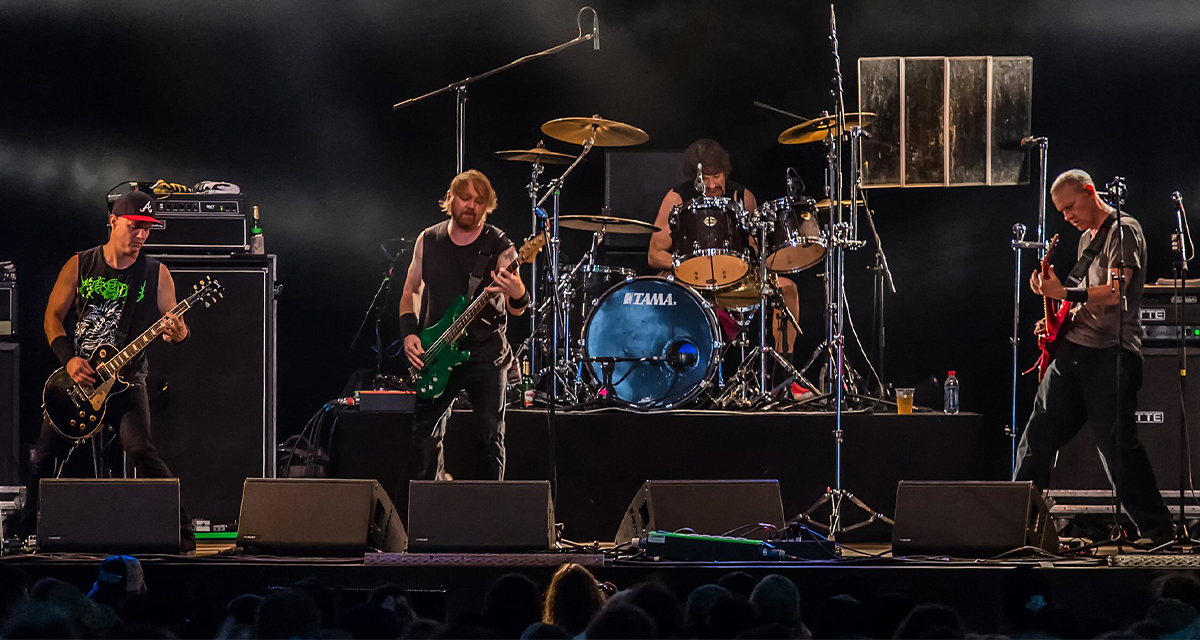 The band’s band Helmet formed in NYC in 1989, and released its first four critically acclaimed full-lengths in the ‘90s to modest sales and an ardently loyal fan base. Still, like pretty much all of the fifteen rock and roll groups on this here list, Helmet should be as large as its influence is, even if you despise some or all of the early-aughts rapping goons in white tank tops. If you’re reading this post-hardcore piece, you likely do, cool kid.
The band’s band Helmet formed in NYC in 1989, and released its first four critically acclaimed full-lengths in the ‘90s to modest sales and an ardently loyal fan base. Still, like pretty much all of the fifteen rock and roll groups on this here list, Helmet should be as large as its influence is, even if you despise some or all of the early-aughts rapping goons in white tank tops. If you’re reading this post-hardcore piece, you likely do, cool kid.
Hum
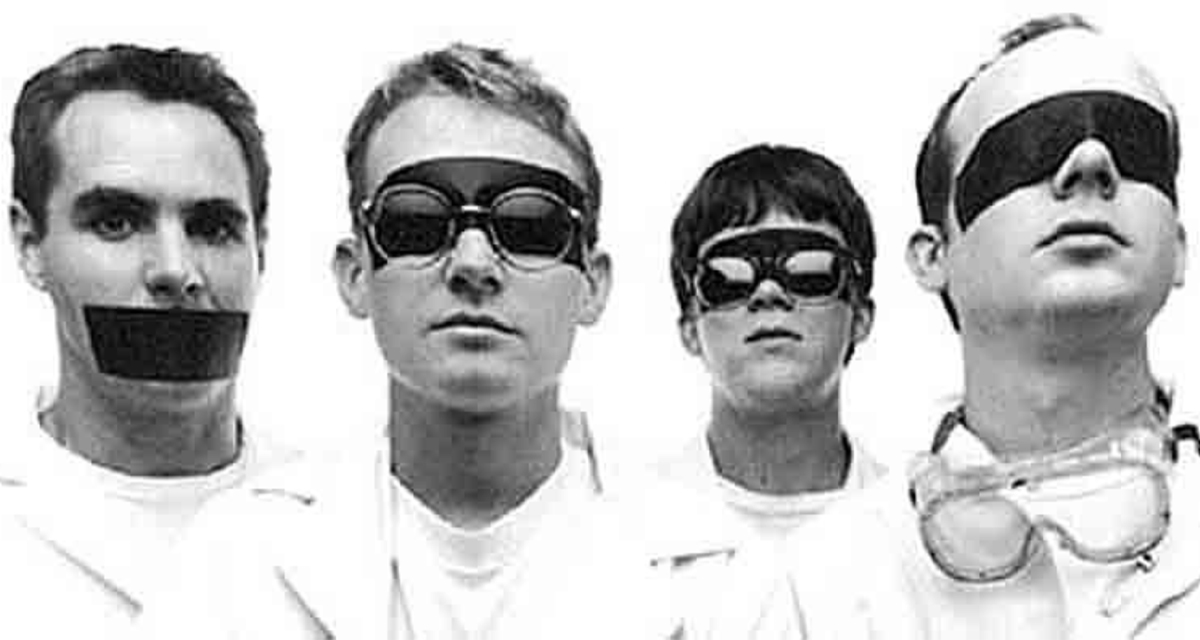 If you like a large side of atmospheric space with your generous ‘90s post-hardcore helping, then Champaign, Illinois’ Hum is for both you and Tom Hanks’ character in Apollo 13. The band reunited in 2020 for a record just after Covid took the airwaves, but released four albums from 1991-1998, the last two of which are classics to both hipsters and alternative rock heads. Although we hate the stupid, smelly, and just plain rude word “shoegaze” for more than fifteen reasons, Hum is a Mount Rushmore act in that immaturely named genre. Come home soon.
If you like a large side of atmospheric space with your generous ‘90s post-hardcore helping, then Champaign, Illinois’ Hum is for both you and Tom Hanks’ character in Apollo 13. The band reunited in 2020 for a record just after Covid took the airwaves, but released four albums from 1991-1998, the last two of which are classics to both hipsters and alternative rock heads. Although we hate the stupid, smelly, and just plain rude word “shoegaze” for more than fifteen reasons, Hum is a Mount Rushmore act in that immaturely named genre. Come home soon.
Jawbox
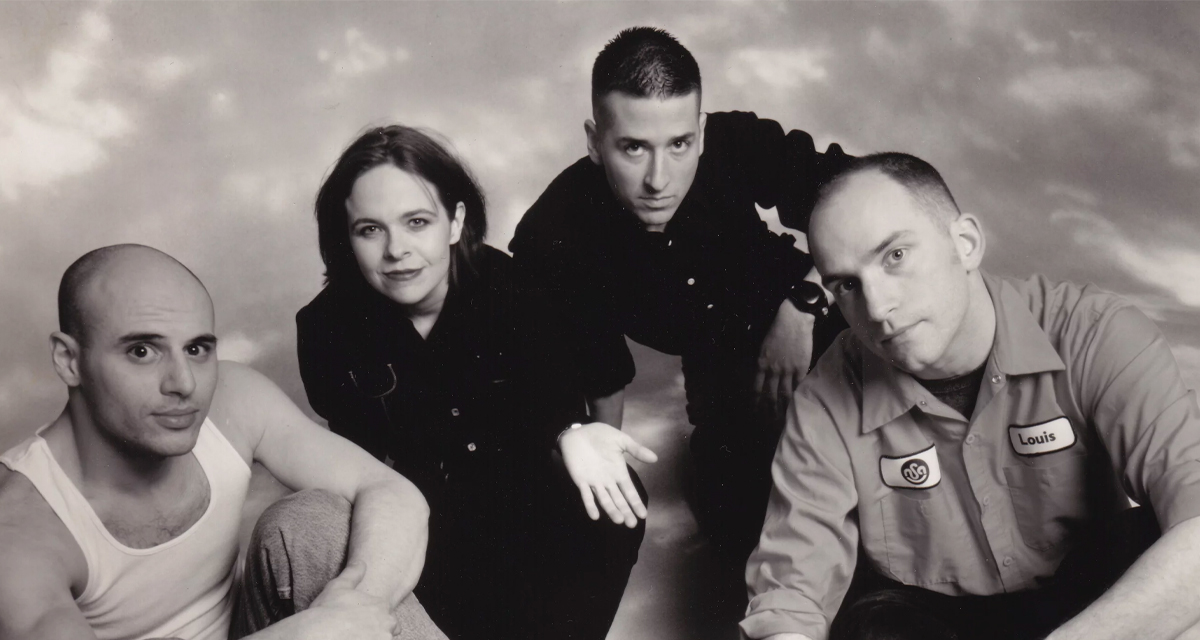 When the first of two bands listed here starting with “Jaw” known as Jawbox broke up, some of its members formed a band called Burning Airlines. There is a joke below about this clever statistic in the next section that is so witty, you are gonna plotz. Anyway, Washington, D.C.’s Jawbox released all four of its full-lengths in the 1990s to hardcore Dischord Record fans and major label rock heads, if the latter one is a thing. Jawbox had a strong influence amongst bands as well, as their catchy single “Savory” from 1994’s “For Your Own Special Sweetheart” was covered by the aforementioned Far and the-influenced-by-all-bands-listed-above-and- below-and-illegal-to-dislike Deftones. In a weird and unpredictable flex, the band played its first show since its 1997 breakup on “Late Night With Jimmy Fallon” in 2009 before splitting up again, and reforming ten years later. We’re still scratching our heads at that one.
When the first of two bands listed here starting with “Jaw” known as Jawbox broke up, some of its members formed a band called Burning Airlines. There is a joke below about this clever statistic in the next section that is so witty, you are gonna plotz. Anyway, Washington, D.C.’s Jawbox released all four of its full-lengths in the 1990s to hardcore Dischord Record fans and major label rock heads, if the latter one is a thing. Jawbox had a strong influence amongst bands as well, as their catchy single “Savory” from 1994’s “For Your Own Special Sweetheart” was covered by the aforementioned Far and the-influenced-by-all-bands-listed-above-and- below-and-illegal-to-dislike Deftones. In a weird and unpredictable flex, the band played its first show since its 1997 breakup on “Late Night With Jimmy Fallon” in 2009 before splitting up again, and reforming ten years later. We’re still scratching our heads at that one.
Jawbreaker
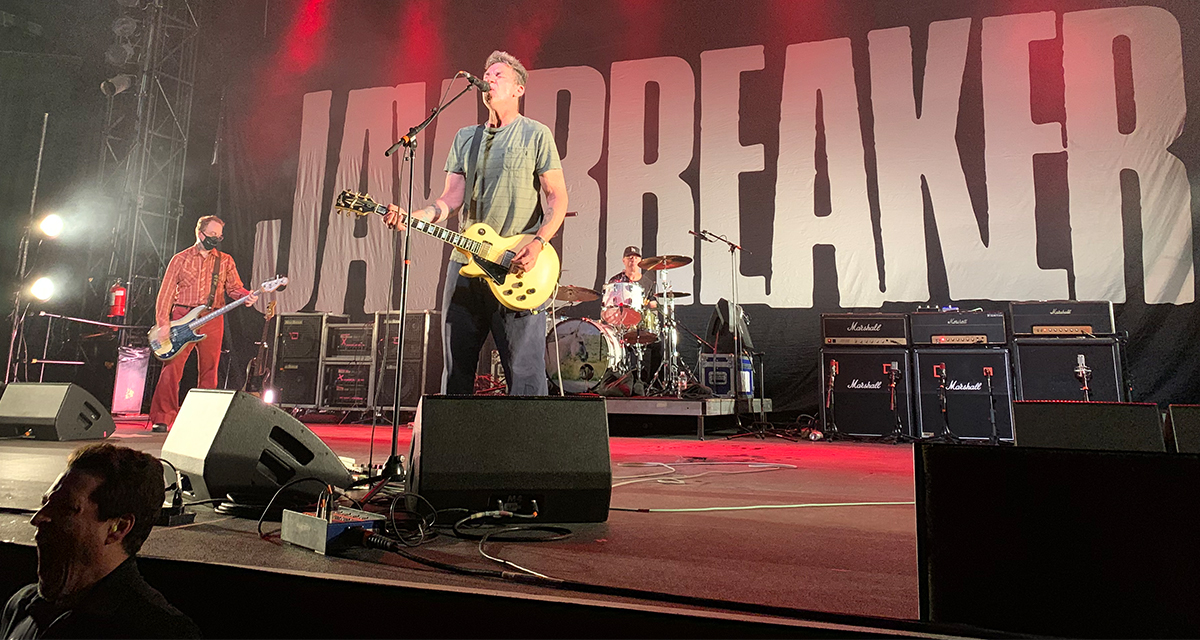 When the second of two bands listed here starting with “Jaw” known as Jawbreaker broke up, one of its members formed a band called Jets to Brazil. Jets to Brazil. Burning Airlines. Jawbreaker. Jawbox. Coincidence? Possibly the largest band on this list, Jawbreaker released three independent record favorites before its final and most hated major label 1995 album “Dear You” pissed off punk rock fans more than The Offspring ever could. Proving that all things must pass, the same posers who scoffed at said record that broke up the band now sing its praises en masse. We see you, oysters. Who’s punk? What’s the score?
When the second of two bands listed here starting with “Jaw” known as Jawbreaker broke up, one of its members formed a band called Jets to Brazil. Jets to Brazil. Burning Airlines. Jawbreaker. Jawbox. Coincidence? Possibly the largest band on this list, Jawbreaker released three independent record favorites before its final and most hated major label 1995 album “Dear You” pissed off punk rock fans more than The Offspring ever could. Proving that all things must pass, the same posers who scoffed at said record that broke up the band now sing its praises en masse. We see you, oysters. Who’s punk? What’s the score?
Orange 9mm
 Like we mentioned in the intro, knowing our extremely intelligent and never critically off-base audience, all fifteen bands listed here suck ass and/or don’t fit the post-hardcore mold, in any way, shape, or form. However, this one may top the list of our questionable gaffes. Our bad. You’re good. Fugazi isn’t the only band listed here to rise from the ashes of a notable hardcore punk group, as Orange 9mm featured a former member of Burn, an underground cult favorite NYHC aggressive act. Also, Orange 9mm brought a different swag and groove to the sometimes uniform post-hardcore world, and it’s tragic that the band didn’t last that long. Plus, the band has a song called “Toilet”.
Like we mentioned in the intro, knowing our extremely intelligent and never critically off-base audience, all fifteen bands listed here suck ass and/or don’t fit the post-hardcore mold, in any way, shape, or form. However, this one may top the list of our questionable gaffes. Our bad. You’re good. Fugazi isn’t the only band listed here to rise from the ashes of a notable hardcore punk group, as Orange 9mm featured a former member of Burn, an underground cult favorite NYHC aggressive act. Also, Orange 9mm brought a different swag and groove to the sometimes uniform post-hardcore world, and it’s tragic that the band didn’t last that long. Plus, the band has a song called “Toilet”.
Quicksand
 All hail Walter Schreifels from every single rock band that ever formed prior to and post-post-hardcore not listed here! You’re a gem. If you like Walter’s older act Gorilla Biscuits but wished that they were a tad more metal with a far less posi vocalist, then Quicksand is the act for you, but you already knew that! If not, why are you here? Not cool, bro(s). Anyway, acclaimed indie label Iodine Records recently repressed Quicksand’s debut major-label 1993 studio album “Slip” on vinyl and post-hardcores across the globe that likely don’t own a record player rejoiced. Head to wall.
All hail Walter Schreifels from every single rock band that ever formed prior to and post-post-hardcore not listed here! You’re a gem. If you like Walter’s older act Gorilla Biscuits but wished that they were a tad more metal with a far less posi vocalist, then Quicksand is the act for you, but you already knew that! If not, why are you here? Not cool, bro(s). Anyway, acclaimed indie label Iodine Records recently repressed Quicksand’s debut major-label 1993 studio album “Slip” on vinyl and post-hardcores across the globe that likely don’t own a record player rejoiced. Head to wall.
Refused
 Much like the Orange 9mm, the unintentionally listed number 9 act mentioned above, this might be a more polarizing entry due to its strong influence on nu-metal and other things you hate, but we don’t care: Refused rocks harder than you and you’re not as post-hardcore as you think you are, pleeb. Possibly the most revered album on this list, 1998’s “The Shape of Punk to Come” was an accurate and strong sonic statement, but the band didn’t get to taste the fruits of its collective labors as it disbanded later that very year. The fact that the group literally refused (low, low hanging fruit) to make new noise (even lower, lower hanging fruit) together again till 2012, fourteen years later, is a travesty. Go ahead, give yourself permission to scream, and watch the scene in 2004’s “Friday Night Lights” film that features “New Noise” if you don’t believe us.
Much like the Orange 9mm, the unintentionally listed number 9 act mentioned above, this might be a more polarizing entry due to its strong influence on nu-metal and other things you hate, but we don’t care: Refused rocks harder than you and you’re not as post-hardcore as you think you are, pleeb. Possibly the most revered album on this list, 1998’s “The Shape of Punk to Come” was an accurate and strong sonic statement, but the band didn’t get to taste the fruits of its collective labors as it disbanded later that very year. The fact that the group literally refused (low, low hanging fruit) to make new noise (even lower, lower hanging fruit) together again till 2012, fourteen years later, is a travesty. Go ahead, give yourself permission to scream, and watch the scene in 2004’s “Friday Night Lights” film that features “New Noise” if you don’t believe us.
Sense Field
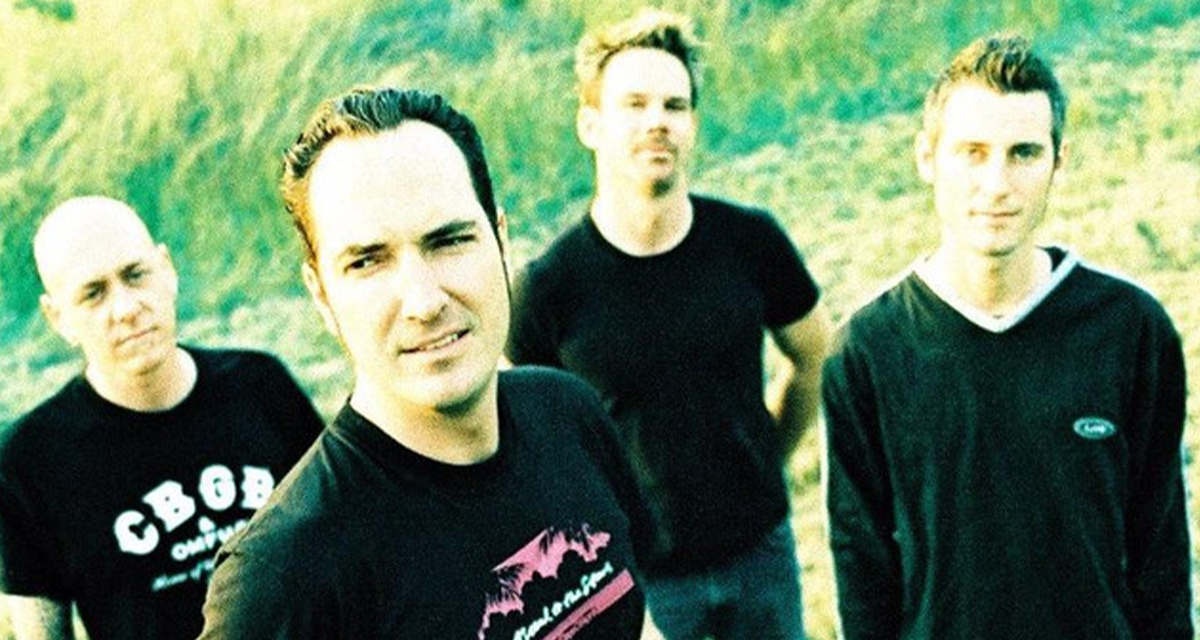 For those of you who need a wallop of sensitivity with your rough-around-the-edges post-hardcore, then do we have the band for you: Sense Field. The word “sweet” doesn’t get justifiably mentioned enough with acts of this ilk, but Jon Bunch’s smooth vocals definitely provide some sugar and smiles to the regular aggressive music listener. Fiesta. Releasing three full-lengths in the ‘90s, the band didn’t have much commercial and radio success until the following decade with 2001’s “Save Yourself,” but the group broke up not too long after. This section of the article doesn’t contain much wit or humor as Bunch left this world in 2016. Thankfully, the band’s material got a new lease on life, especially 1996’s brilliant “Building,” which, in light of things, you should spin right now.
For those of you who need a wallop of sensitivity with your rough-around-the-edges post-hardcore, then do we have the band for you: Sense Field. The word “sweet” doesn’t get justifiably mentioned enough with acts of this ilk, but Jon Bunch’s smooth vocals definitely provide some sugar and smiles to the regular aggressive music listener. Fiesta. Releasing three full-lengths in the ‘90s, the band didn’t have much commercial and radio success until the following decade with 2001’s “Save Yourself,” but the group broke up not too long after. This section of the article doesn’t contain much wit or humor as Bunch left this world in 2016. Thankfully, the band’s material got a new lease on life, especially 1996’s brilliant “Building,” which, in light of things, you should spin right now.
Shades Apart
 We’re wrong. This is a straight up punk band. Actually, you’re wrong. This is a post-hardcore act in a straight up punk world. Save it. Like the band mentioned in the last section and one yet-to-be-mentioned later, the power trio known as Shades Apart was an integral part of the highly influential Revelation Records roster. Try saying those last three words starting with “R” five times fast; spoiler alert: you can’t. Showing that the band is so much more than their rockin’ “Tainted Love” cover, spin the band’s final Revelation Records LP, 1997’s “Seeing Things” from beginning-to-end and immediately put on 1999’s Universal Records’ major label debut “Eyewitness” for all twelve tracks. Thank you, New Jersey! Thank you, New Jersey?
We’re wrong. This is a straight up punk band. Actually, you’re wrong. This is a post-hardcore act in a straight up punk world. Save it. Like the band mentioned in the last section and one yet-to-be-mentioned later, the power trio known as Shades Apart was an integral part of the highly influential Revelation Records roster. Try saying those last three words starting with “R” five times fast; spoiler alert: you can’t. Showing that the band is so much more than their rockin’ “Tainted Love” cover, spin the band’s final Revelation Records LP, 1997’s “Seeing Things” from beginning-to-end and immediately put on 1999’s Universal Records’ major label debut “Eyewitness” for all twelve tracks. Thank you, New Jersey! Thank you, New Jersey?
Shellac
 Listen to “In Utero”. If you don’t understand this reference, stop reading this right now and reevaluate your rock cred on Google just before shitting yourself. If you do, stop reading this article right now and book a session with Steve Albini to record your awful band, as he won’t take any royalties! Ready to move on? Good! Shellac’s 1994 LP “At Action Park” is a noisy post-hardcore album that is a solid combo of two acts referenced above, Drive Like Jehu and Quicksand. It is also quite similar to an early-90s trip to New Jersey’s dangerous and surprisingly popular Action Park; watch 2020’s painful and wtf-worthy documentary “Class Action Park” if you don’t believe us. Furthermore, the awesome trio known as Shellac should be called Shred-lac. Yeah.
Listen to “In Utero”. If you don’t understand this reference, stop reading this right now and reevaluate your rock cred on Google just before shitting yourself. If you do, stop reading this article right now and book a session with Steve Albini to record your awful band, as he won’t take any royalties! Ready to move on? Good! Shellac’s 1994 LP “At Action Park” is a noisy post-hardcore album that is a solid combo of two acts referenced above, Drive Like Jehu and Quicksand. It is also quite similar to an early-90s trip to New Jersey’s dangerous and surprisingly popular Action Park; watch 2020’s painful and wtf-worthy documentary “Class Action Park” if you don’t believe us. Furthermore, the awesome trio known as Shellac should be called Shred-lac. Yeah.
Texas is the Reason
 Along with entry number three, the aforementioned (and a-far-mentioned) Far, the band known as Texas is the Reason should’ve been much, much bigger than the four-piece actually was. Sadly, the group released just one album before calling it a day one year after its release, and in a crazy twist of fate, the band was just about to sign with Capitol fucking Records for a follow-up (and more). How post-hardcore is that? Damn the man. To end this piece on an upper, 1996’s “Do You Know Who You Are?” is unquestionably (get it?) a perfect album from track one to nine, and is the highest selling LP on Revelation Records, every little girl’s dream.
Along with entry number three, the aforementioned (and a-far-mentioned) Far, the band known as Texas is the Reason should’ve been much, much bigger than the four-piece actually was. Sadly, the group released just one album before calling it a day one year after its release, and in a crazy twist of fate, the band was just about to sign with Capitol fucking Records for a follow-up (and more). How post-hardcore is that? Damn the man. To end this piece on an upper, 1996’s “Do You Know Who You Are?” is unquestionably (get it?) a perfect album from track one to nine, and is the highest selling LP on Revelation Records, every little girl’s dream.




